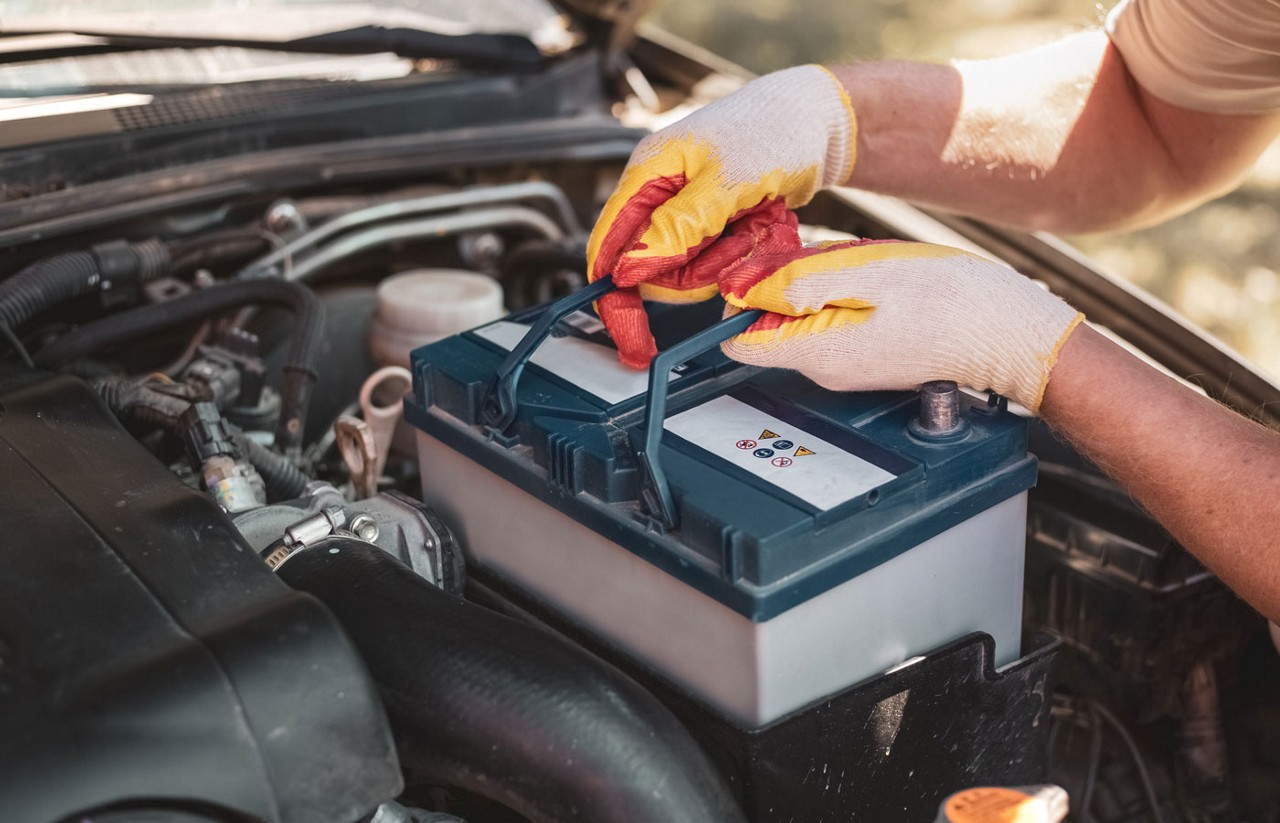Connecting your car battery can sometimes trigger unexpected issues, such as your engine attempting to start without even turning the key in the ignition. This phenomenon can be puzzling and concerning for many car owners. In this article, we’ll delve into the reasons behind this peculiar behavior, potential causes, and how you can address them.
Understanding the Ignition System
Before we get into the causes of your car trying to start when connecting the battery, it’s essential to understand how the ignition system works. When you turn the key or push the start button in your vehicle, it sends an electrical signal to activate the starter motor. This motor then engages the flywheel, which eventually cranks the engine.
If connecting the battery causes a similar reaction, it indicates a problem within this system. Understanding the components of your ignition system can help in identifying where the problem may lie, whether with the battery itself, the starter, or the car’s electrical connections.
Potential Causes for the Issue
Short Circuit in the Wiring
One common reason for a car trying to start when connecting the battery is a short circuit in the wiring. If the wiring system has exposed wires or loose connections, it can create an unintended path for electrical current. When you connect the battery, this short circuit can trigger the starter motor to activate, attempting to crank the engine.
To diagnose this issue, inspect the wiring and connections around the battery and starter. Look for any signs of damage, corrosion, or loose wires. If you identify any problems, it’s advisable to repair or replace the affected components to prevent further issues.
Ignition Switch Malfunction
Another potential cause could be a malfunctioning ignition switch. The ignition switch is responsible for sending the electrical signal to various components, including the starter. If this switch is faulty, it might send power to the starter motor unintentionally when the battery is connected, leading the car to attempt to start on its own.
To troubleshoot this, check the ignition switch by turning the key in different positions. If your car starts unsuccessfully or behaves oddly without needing to turn the key, the ignition switch may need to be replaced.
Problems with the Starter Motor
Sticking Solenoid
The starter motor has a component called a solenoid responsible for engaging the starter when you turn the key or push the start button. If this solenoid gets stuck due to dirt, corrosion, or wear, it can unintentionally activate the starter when the battery is connected. Consequently, this can cause your engine to try to crank without any deliberate action from you.
Clearing away dirt, ensuring all connections are clean, or replacing the solenoid may resolve the problem. If the starter motor still behaves oddly after cleaning, you may need to consider replacing the entire starter motor.
Malfunctioning Relay
A faulty relay can also lead to similar issues. The relay acts as an intermediary that helps control the power flow to the starter motor. If the relay has issues, it might cause the starter motor to engage accidentally upon connecting the battery.
To determine if the relay is functioning correctly, consider swapping it with a similar relay from another system within the car (if applicable) to confirm if that resolves the issue. Replacing a faulty relay is a relatively simple and cost-effective solution.
Electrical System Issues
Poor Ground Connection
A poor ground connection can lead to various electrical issues in a vehicle. If the ground wire connecting the battery to the chassis is loose, damaged, or corroded, it can create erratic electrical behavior, including inadvertently activating the starter motor when the battery is connected.
It’s wise to check the battery ground connection and ensure that it is clean, tight, and free from corrosion. If adjustments do not resolve the issue, you may need to replace the ground wire entirely.
Battery Problems
Sometimes, issues with the battery itself can lead to this behavior. If a battery is old or defective, voltage fluctuations can occur when it’s connected, causing various electrical systems to react unexpectedly.
Testing the battery’s voltage and functionality is a good first step. If the battery is providing inadequate voltage or showing signs of wear, it may be time for a replacement.
Addressing the Problem
Initial Diagnosis
When faced with the issue of your car trying to start upon connecting the battery, start by checking the simplest potential causes. Observe the battery terminals for any visible corrosion or dirt. Clean them thoroughly and ensure all connections are secure. If the problem persists, investigate the wiring, ignition switch, starter motor, and relays as discussed.
Seeking Professional Help
If you have conducted basic troubleshooting and the problem remains unresolved, it may be necessary to seek professional assistance. Car mechanics have the expertise and diagnostic tools to identify and fix the underlying issues accurately. Ignoring this problem can lead to more severe electrical issues that could jeopardize your vehicle’s reliability and performance.
Conclusion
In summary, having your car attempt to start when connecting the battery can be symptomatic of various issues, ranging from electrical problems to component malfunctions. Understanding your vehicle’s systems and conducting appropriate diagnostic checks can aid in identifying the root cause of the problem.
Whether it’s a short circuit, a faulty ignition switch, or an issue with the starter motor, addressing these issues promptly can save you time and money in the long run. Always prioritize safety and consider seeking professional help to ensure your vehicle is functioning correctly.
FAQs
1. Can a dead battery cause my car to try and start?
A dead battery won’t typically cause your car to erroneously attempt to start when connected. However, an old or malfunctioning battery can produce peculiar electrical behaviors.
2. Is it safe to connect a battery if my car is attempting to start?
No, it’s generally not safe to connect the battery if you observe your car trying to start on its own. This can lead to further electrical damage and potential safety hazards.
3. How can I tell if my starter motor is faulty?
Signs of a faulty starter motor can include a clicking sound when attempting to start the engine, no response at all, or your car trying to start unexpectedly.
4. What’s the significance of a proper ground connection?
A good ground connection is essential for the safety and performance of your car’s electrical system. Poor ground connections can lead to erratic behavior, including problems with starting the engine.
5. How often should I check my car’s battery?
It’s advisable to check your car’s battery at least once a year for any signs of wear or corrosion, and especially before long trips or adverse weather conditions. Regular maintenance can help prevent unexpected electrical issues.



